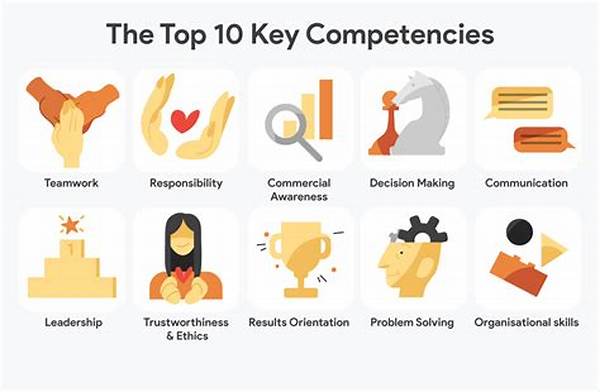In the digital age, where technology continuously evolves, AI engineers are not just adapting but are leading the change. They are the creative minds behind the algorithms that make machines think like humans. Imagine a world where machines understand your needs, habits, and preferences. AI engineers make this possible, and behind their genius are the key competencies for AI engineers that set them apart.
AI engineering is not just about numbers and codes. It demands a cocktail of skills that is as diverse as it is specialized. From data manipulation and complex problem-solving to innovative thinking and ethical reasoning, AI engineers possess a multifaceted skill set that is the backbone of technological advancements. These professionals are like the modern-day alchemists, turning data into solutions that enhance lives and streamline operations.
For those interested in becoming an AI engineer or those curious about what makes them tick, understanding the key competencies for AI engineers is crucial. These competencies are not just technical; they encompass a range of abilities that include emotional intelligence, effective communication, and a deep ethical understanding of AI’s impact on society. Want to dive deeper into these skills? Let us explore!
Essential Skills Every AI Engineer Needs
The realm of AI is broad and complex, requiring engineers to have a solid grasp of a variety of technical skills, including programming languages such as Python and R, understanding of machine learning algorithms, and proficiency in data analytics. However, these are just the tip of the iceberg. What truly makes an AI engineer stand out are the key competencies that go beyond the technical requirements.
Creativity is one of those crucial skills. AI engineers need to come up with innovative solutions and novel algorithms to solve unseen challenges. Furthermore, critical thinking and problem-solving abilities are essential when designing AI systems that must navigate the complexities of real-world environments. These engineers must also excel in teamwork, as AI projects are often collaborative efforts that require effective communication and coordination with different stakeholders.
Moreover, ethical reasoning stands out as a competency of growing importance. As AI systems are increasingly deployed in sensitive areas, understanding the ethical implications and making responsible choices is vital. Therefore, these are the key competencies for AI engineers that shape the future of technology.
Delving Deep into AI Engineering Skills
Broadening Technical Horizons
To thrive in the ever-expanding field of AI, engineers must continuously cultivate their technical knowledge. Mastering multiple programming languages allows AI engineers to adapt to different technologies and platforms. Furthermore, a comprehensive understanding of machine learning frameworks and neural networks is indispensable, as these are pivotal in developing efficient AI models.
The Art of Communication
AI engineers frequently collaborate with professionals from non-technical backgrounds. Thus, the ability to convey complex ideas in simple terms becomes invaluable. They must articulate intricate processes clearly and effectively to ensure all stakeholders are aligned and informed. Communication skills are central to building trust and ensuring the successful implementation of AI solutions.
The Ethical Compass
As AI becomes more integrated into society, ethical considerations take center stage. Key competencies for AI engineers now include the ability to foresee the societal impacts of AI deployment and make value-based decisions that prioritize ethical alignment over mere technological advancement. This ensures AI systems are aligned with human values and societal norms.
Navigating Complex Challenges
AI engineering demands a unique blend of analytical skills and creativity. Problem-solving is not just about finding a single solution; it’s about exploring a spectrum of possibilities and selecting the optimal path. This requires engineers to harness their analytical acumen while remaining open-minded and innovative, pushing the boundaries of what AI can achieve.
Engaging in the Future
The skills required for AI engineers are evolving, just like the technology they develop. These professionals must not only embrace change but also actively shape it. Continuous learning, curiosity, and adaptation are all part of the journey. By mastering these key competencies for AI engineers, they ensure that they are not only keeping up with the pace but are also laying down the tracks for the future.
—
Discussion Points on Key Competencies for AI Engineers
In summary, the role of AI engineers in shaping the future is indispensable. Through mastering these key competencies for AI engineers, they navigate the complexities of technology and ensure that advancements are both innovative and ethical. The journey requires perseverance, creativity, and a dedication to continuous growth. These engineers are not just part of the future; they are building it, one algorithm at a time.

